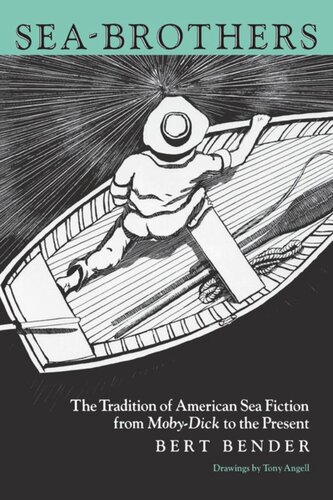

Most ebook files are in PDF format, so you can easily read them using various software such as Foxit Reader or directly on the Google Chrome browser.
Some ebook files are released by publishers in other formats such as .awz, .mobi, .epub, .fb2, etc. You may need to install specific software to read these formats on mobile/PC, such as Calibre.
Please read the tutorial at this link: https://ebookbell.com/faq
We offer FREE conversion to the popular formats you request; however, this may take some time. Therefore, right after payment, please email us, and we will try to provide the service as quickly as possible.
For some exceptional file formats or broken links (if any), please refrain from opening any disputes. Instead, email us first, and we will try to assist within a maximum of 6 hours.
EbookBell Team

5.0
108 reviewsSea-Brothers offers the most extensive analysis to date of the sea and its meaning in American literature. On the basis of his study of Melville, Crane, London, Hemingway, Matthiessen, and ten lesser-known sea-writers, Bert Bender argues that the tradition of American sea fiction did not end with the opening of the western frontier and the replacement of sailing ships by steamers. Rather, he demonstrates its continuity and vitality, identifying a central vision within the tradition and showing how particular authors draw from, transform, and contribute to it.
What is most distinctive about American sea fiction, Bender contends, is its visionary, often mystical, response to the biological world and to man's perceived place in the larger universe. When Melville envisioned the sea as the essential element of life, indeed as life itself, he changed the course of American sea fiction by introducing the relevance of biological thought. But his meditations on the whale and "the ungraspable phantom of life" project a different reality from that envisioned by his successors. In American sea fiction after Melville, the influence of Origin of Species is as powerful as that of Moby Dick or the theme of sailing ships being displaced by steam.
The ideal of brotherhood so central to American sea fiction was severely compromised by the biological reality of a competitive, warring nature. Twentieth-century sea fiction has continued to center on the biological world and address the possibility of democratic brotherhood, but the issues were fundamentally changed by Darwin's theories.
This book will be a valuable source for students and scholars of American literature and will interest readers of sea fiction.